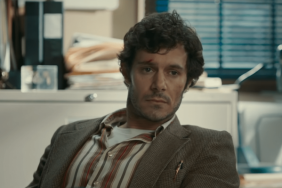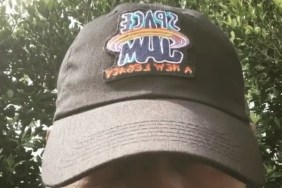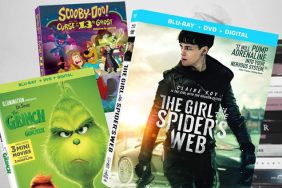Family-friendly films are, by definition, designed with kids in mind. Themes like rape and torture are avoided as a general rule, and the slings and arrows of grownup life are mercifully sugarcoated. Ideally, edifying morals are instilled, and empowering practical advice is doled out. For good reason, children are typically told tales in which sympathetic heroes prevail and the bad guys are mostly just misguided comic foils in need of a hug. It’s what we’ve come to expect. How could we have known so many of our old favorites were wildly age-inappropriate? Here are ten objectionable selections we thought were safe at the time.


Yes, Alfalfa and the gang are irresistible. And folks love watching small children in adult predicaments; it’s the perfect mix of absurdity and charm. But something about this transplant from the pre-war era seems oddly ill-fitting in the context of the 1990s. These neglected tots roam the town at all hours dressed like mid-century urchins, diving headfirst into mischief. They extinguish a house fire without help, set elaborate booby traps, operate motorized vehicles and venture out on boats and overnight camping excursions with no sign of concerned parents. They devise crafty money-making schemes- one requiring that they disguise themselves as Orthodox Jews in a bank and the other that they cross-dress. They also run a neighborhood club devoted exclusively to the mission of supporting lifelong misogyny and celibacy. (When Alfalfa defies the code to date Darla, he recites romantic poetry about the merging of hearts and souls. A kiss on the mouth springs his cowlick into its full upright position.) All the action goes down without a single disclaimer. At least the He-Man club ultimately rules to offer membership to women, provided they serve as designated girlfriends to the boys.


Dennis is an adorable, precocious young boy whose hobbies include carting around a red wagon full of trinkets and playing potentially fatal pranks on an elderly neighbor who despises him. He has little regard for authority. He uses his ridiculously cute mug to win sympathy from accusers. Everything Dennis touches turns into a flaming weapon or some other kind of serious health hazard. Of course, the fragile Walter Matthau would be silly to befriend such a loose cannon, but the poor old man is depicted as grumpy, unreasonable and in need of a major chill pill. Why shouldn’t Dennis be learning important lessons, instead? The first one could go something like: When a filthy switchblade-carrying Christopher Lloyd abducts you and hides you in the woods, don’t be so agreeable and friendly, and don’t attempt any hilarious hijinks. Underage viewers could have used such a handy tip.


What starry-eyed youth wouldn’t want to join up with this pack of teenage heroes? The adventurous Power Rangers are brave. They’re intelligent and good-hearted. They’re sexy and ethnically diverse in the most calculated of ways. They also act as supernatural agents in a high-stakes, large-scale intergalactic war involving dark religious imagery and rhetoric. The movie’s villains are monstrous- the physical embodiments of depravity and hate. There’s no shortage of ancient mystical beings hell-bent on destruction. Ivan Ooze uses hypnosis and mind control to brainwash a hoard of parents to seek suicide. He causes the town to declare a state of emergency when he transforms into a robotic car-smashing Godzilla, just because he can. The Rangers eventually save the day by channeling their animal spirits and vanquishing him with a comet, and we all learn this valuable reductionist lesson in the end: Evil is external- a terrifying alien force from a realm beyond our scope of understanding and control. But if you happen to belong to a secret society of fighters armed with magical powers and a commitment to teamwork, you should be totally fine.


In this movie based on the comic books, Macaulay Culkin plays the improbably named title character- the world’s wealthiest child. Naturally, Richie would trade the 70-billion-dollar family fortune for just a few baseball games with his scruffy counterparts on the other side of the tracks. Immediately upon winning their trust, Richie casually involves his new friends in a dangerous plot involving attempted murder, unbridled greed and violent prison breaks. Before they know it, there are literal bullets flying past their tear-soaked faces as they hang suspended in a metal cage designed to carry them to their final destination. They must be as confused as they are terrified. Before little Richie came along, money was something they exchanged in small amounts for Valentine’s candy and school lunches and second-hand cleats at the flea market. Now it’s their psychotic attacker’s single reason for living. Those poor kids deserved a gentler introduction to the world of the One Percenters, but at least they’ll have a sobering story to tell the next time someone facetiously utters the phrase “mo’ money, mo’ problems.”


This critical bomb and giant chaotic eyesore raked in almost a quarter billion dollars internationally, but that wasn’t enough for the honchos at Warner Bros. Dangling Michael Jordan and the Looney Tunes crew like a carrot in front of rapt children and their unfortunate parents was a no-brainer. Filling those theater seats was the easier half of the battle. Using Jordan’s real-life retirement from the NBA to weave the threadbare plot, this movie was mainly an exercise in merchandising and product placement. It’s fitting, since the whole franchise was sloppily spun off from a Nike ad. In addition to standard apparel and special Air Jordans, there were vitamins and action figures and video games and cookie jars and hundreds of other items that would succeed in earning Warner Bros. $1.2 billion in merchandise profits. It’s no secret that marketers are especially fond of kids. But this tossed-together clunker of a feature-length commercial is particularly odious, both for launching media synergy to a whole new level and for officially introducing the children of America to R. Kelly.


John Candy portrays a cigar-smoking unemployed compulsive gambler in this John Hughes favorite about a crude estranged uncle of a clean suburban trio of kids. Tasked with a lengthy babysitting stint while Mom and Dad are out of town, the unpredictable Uncle Buck is a sort of rebellious hero in the eyes of the younger two but a disgusting menace to the brooding teen girl whose first bud of sexuality is blossoming before his very eyes. He responds to the awkwardness by taking her purity into his own grubby hands, creepily cockblocking her imbecilic boyfriend at every turn and threatening his kneecaps with a rusty hatchet. Owing to his massive size and flippant disregard for societal norms, Uncle Buck is quite the intimidating figure. He punches an inebriated clown and humiliates an uptight schoolmarm with an unsightly mole. By the end, the lovable oaf has taught us that might makes right in any matter of consequence. Also, he who holds the key to the chastity belt is the best father figure of all.


The Indian, in this case, is a tiny plastic figurine in the shape of a half-naked Native American warlord with a partially shaved head wearing tribal gear, wielding a knife and speaking in broken English. He’s called Little Bear, and his owner is a little white boy named Omri who keeps him locked away in a confined space for extended periods of time. This is a problem only because Little Bear keeps coming to life and is understandably terrified of his surroundings at first. Once he’s become acclimated to his sympathetic owner and drastic lifestyle changes, he serves mostly as an object of curiosity, teaching his enormous master about the brutal, superstitious ways of the Iroquois wolf clan. Granted, the superstition is justified by the magic that brought Little Bear to life, but gross cultural stereotypes are abundant. Pocahontas had her issues, but at least she got to be life-sized.


Marty McFly can’t catch a break. His immediate family members are weak and joyless. His emasculated doormat of a dad can’t satisfy his depressed, boozed-up mom, and his brother and sister are already lost causes. The dark, nihilistic tone of his home life is thicker than a rain cloud; it’s a wonder the boy is so well-adjusted and ambitious. For some reason, it’s up to young Marty to shoulder the burden of his family’s failure; he must successfully rectify the tragic situation with the help of time travel and a dash of erotic entrapment. This film helpfully illustrates the Oedipus complex for kids who haven’t yet been exposed to the phenomenon of incestuous desire. After Marty’s 1955 revved-up version of Mom does all she can to get into her son’s Calvin Klein underwear (even kissing him aggressively on the lips), she suffers a violent rape attempt at the hands of a very drunk jock. But hey, nobody ever said heroically rewriting your pitiful family’s history would be easy, and what’s a bit of sexual trauma if it means less ennui down the road?


Everyone remembers Tom Hanks hopscotching across those humongous piano keys at FAO Schwarz. We recall the delightful whimsy of the film and the sweet sincerity of its protagonist. This story is about retaining the inquisitiveness and faith of our childhood years well into adulthood. It’s about bringing humanity and imagination to the corporate world without being consumed by petty competition and a lust for power. Though in reality Josh is just a little boy trapped in a grown man’s body, he’s seen as an uncommonly earnest guy by all who encounter him. He’s thus eligible for lodging at a seedy flophouse chock full of professional whores and drug lords and entitled to large paychecks which send him to greener real estate pastures. To top off the misleading depiction of rapid career advancement as a matter of luck, the movie asserts that pedophilia is a non-issue as long as the child involved is helplessly stuck with the genitalia of a sexually mature adult. Poor Josh can’t quite process the situation enough to ward off Elizabeth Perkins, but couldn’t a cameraman have stepped in at some point?


It’s a tale as old as time. Boy meets Girl. Girl is coy. Boy forcibly imprisons Girl. Boy withholds food and other necessities. Boy alienates Girl from family. Girl develops Stockholm Syndrome. Boy is actually a handsome prince cursed to live as a hideous monster until Girl agrees to cure him with her unconditional love and eternal commitment. Disney’s adaptation of the fable is a musical masterpiece, but it’s essentially a case study in domestic violence with a happy ending. In real life, stories like these don’t resolve themselves so idyllically, and there’s rarely a fleet of live-in servants willing to offer their sympathy and support during the cycle of abuse. There must have been a scene in which Belle nurses a broken arm and practices her cover story in the mirror (That castle staircase is brutal!), but it was left on the cutting room floor. It’s a shame, really. Once you’ve decided to expose kids to the hard knocks of reality, it helps to leave nothing out.








